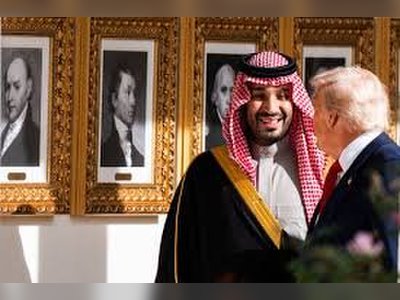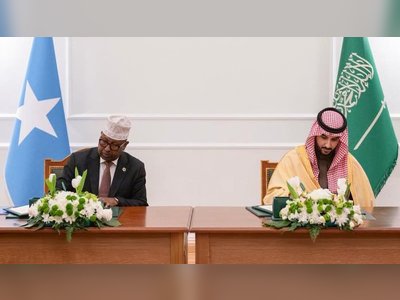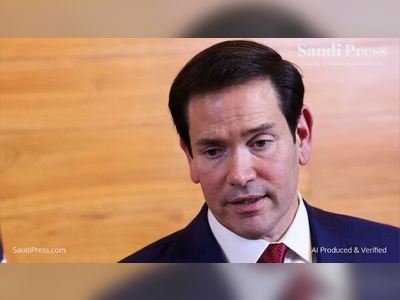Iran Promotes Inclusivity with First Baluch Governor, as Saudi Arabia Surpasses Female Workforce Milestone Amid Global Partnerships
Iran appoints first Baluch governor in Sistan-Baluchistan to ease ethnic tensions, while Jordan condemns Israeli airstrike in Gaza, urging UN action.
In an effort to address ethnic tensions, Iran has taken a significant step by appointing Mansour Bijar as the first Baluch governor in the province of Sistan-Baluchistan. This move comes as part of broader initiatives to include minority groups in governance, such as recent appointments of the first Sunni governor for Kurdistan and the first Arab governor for Khuzestan.
Meanwhile, Jordan has expressed strong disapproval of an Israeli airstrike in Gaza, labeling it a "new massacre" after the tragic loss of at least 88 lives, including many women and children. Emphasizing the urgency for international accountability, Jordan is urging the United Nations Security Council to take decisive action against these violations of international law.
In contrast, Saudi Arabia is witnessing a positive trend in its workforce dynamics, as the Kingdom advances towards a goal of 40% female workforce participation by 2030, surpassing its interim target of 30%. This achievement reflects broader Vision 2030 objectives, such as increasing non-oil GDP contributions and reducing unemployment rates, all of which signal transformative economic diversification.
These economic aspirations are further supported by ACWA Power, which has secured $1.78 billion in agreements aimed at boosting renewable energy and research globally. The deals, announced at the Future Investment Initiative in Riyadh, include significant partnerships and financing packages to enhance solar projects, wind power, and R&D efforts across various countries.
On another front, Al-Futtaim Electric Mobility Co. is making strides in Saudi Arabia's electric vehicle market, fostering job creation and infrastructure development through strategic partnerships. Collaborating with BYD and aligning with Vision 2030, the company aims to improve EV adoption by building local capability and offering advanced vehicle options alongside charging solutions.
Not stopping there, Saudi Aramco is expanding its global influence by forming strategic partnerships with Vietnam Oil and Gas Group and fintech company Taulia. These collaborations aim to strengthen Aramco's energy storage and supply chain capabilities while innovating in supply chain financing, thereby boosting resilience and liquidity for its network of suppliers.
Meanwhile, Jordan has expressed strong disapproval of an Israeli airstrike in Gaza, labeling it a "new massacre" after the tragic loss of at least 88 lives, including many women and children. Emphasizing the urgency for international accountability, Jordan is urging the United Nations Security Council to take decisive action against these violations of international law.
In contrast, Saudi Arabia is witnessing a positive trend in its workforce dynamics, as the Kingdom advances towards a goal of 40% female workforce participation by 2030, surpassing its interim target of 30%. This achievement reflects broader Vision 2030 objectives, such as increasing non-oil GDP contributions and reducing unemployment rates, all of which signal transformative economic diversification.
These economic aspirations are further supported by ACWA Power, which has secured $1.78 billion in agreements aimed at boosting renewable energy and research globally. The deals, announced at the Future Investment Initiative in Riyadh, include significant partnerships and financing packages to enhance solar projects, wind power, and R&D efforts across various countries.
On another front, Al-Futtaim Electric Mobility Co. is making strides in Saudi Arabia's electric vehicle market, fostering job creation and infrastructure development through strategic partnerships. Collaborating with BYD and aligning with Vision 2030, the company aims to improve EV adoption by building local capability and offering advanced vehicle options alongside charging solutions.
Not stopping there, Saudi Aramco is expanding its global influence by forming strategic partnerships with Vietnam Oil and Gas Group and fintech company Taulia. These collaborations aim to strengthen Aramco's energy storage and supply chain capabilities while innovating in supply chain financing, thereby boosting resilience and liquidity for its network of suppliers.











